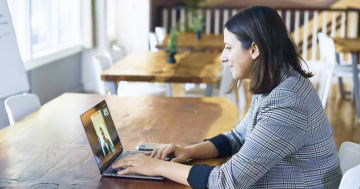Confirmation & Hindsight Bias
MCAT Psychology - Chapter 2- Section 4 - Cognition - Intelligence & Problem-Solving
- Home
- »
- MCAT Masterclass
- »
- Psychological, Social, and Biological Foundations of Behavior
- »
- Psychology
- »
- Cognition
- »
- Intelligence and Problem-Solving
- »
- Confirmation & Hindsight Bias – MCAT Psychology
Sample MCAT Question - Confirmation & Hindsight Bias
Individuals who place more weight on evidence that support their position display:
a) Anchoring bias.
b) Confirmation bias.
c) Self-serving bias.
d) Fundamental attribution error.
B is correct.
Confirmation bias is a type of cognitive bias that describes how individuals search for or interpret information in a way that confirms their preexisting beliefs. Searching for or placing more weight on evidence that supports your position is an example of this. Answer choice A is incorrect because anchoring bias is the tendency to rely on the first piece of information learned when making decisions. Answer choice C is incorrect because self-serving bias is when one attributes their own successes to internal abilities and efforts but failure to external factors. Answer choice D is incorrect because fundamental attribution error is the tendency to attribute others failures to internal factors and their successes to external factors.
Conciousness-Altering Drugs
Get 1-on-1 MCAT Tutoring From a Specialist
With MCAT tutoring from MedSchoolCoach, we are committed to help you prepare, excel, and optimize your ideal score on the MCAT exam.
For each student we work with, we learn about their learning style, content knowledge, and goals. We match them with the most suitable tutor and conduct online sessions that make them feel as if they are in the classroom. Each session is recorded, plus with access to whiteboard notes. We focus on high-yield topics if you’re pressed for time. If you have more time or high-score goals, we meticulously cover the entire MCAT syllabus.
Confirmation & Hindsight Bias for the MCAT
Confirmation bias and hindsight bias are two cognitive biases that are crucial to know for the MCAT. These biases can subtly distort our understanding of events, leading to flawed reasoning and potentially inaccurate conclusions. Confirmation bias refers to the tendency to seek, interpret, and remember information in a way that confirms our preexisting beliefs or hypotheses, while disregarding or downplaying contradictory evidence. Hindsight bias, on the other hand, involves the inclination to perceive past events as more predictable or foreseeable than they actually were, often leading us to believe that we “knew it all along” after the outcome is known.
Confirmation Bias
Confirmation bias is a type of cognitive bias that causes individuals to search for or interpret information in a way that confirms their pre-existing beliefs. Individuals can search for or place more weight on evidence that supports their position. For example, consider a study in which participants were asked to imagine that they were serving on a jury to decide who will receive sole custody of a child, Parent A or Parent B. Parent A was described as having an average income and an average relationship with the child. Parent B was given a description with both positive and negative characteristics. For example, Parent B was described as having a very close relationship with the child, but also having lots of work-related travel. When experimenters asked participants which parent should have custody, the participants looked for positive characteristics, and Parent B (having a very close relationship with the child) was picked more often. Conversely, when experimenters asked participants which parent should be denied custody, the participants looked for negative characteristics and selected Parent B more often as well. In both cases, evidence that very obviously supported or denied a position was selected for much more heavily.
Another way that confirmation bias can affect us is by causing individuals to interpret evidence in a way that supports their position, or by causing individuals to reject evidence not supporting their position. Consider a study where participants were previously either in favor of or against capital punishment. Students were given a reading assignment that provided information describing capital punishment. Students in favor of capital punishment were more likely to interpret the new evidence as supporting capital punishment, while students against capital punishment were more likely to believe the evidence supported abolishing capital punishment.
Hindsight Bias
The hindsight bias is the tendency to overestimate the extent to which the outcome of an event could have been predicted after the event has occurred. Once an event has occurred, it is often easy to understand and see the events that led to such an event occurring, leading to the bias of thinking that it must also have been sufficiently easy to see those pathways before the event took place.
The hindsight bias can be applied to almost any instance of a shocking or surprising event, from personal matters all the way to global economic and sociopolitical trends. This can be seen, for example, in the context of crime investigations, where eyewitnesses, after being asked to identify a suspect in a list of photos of a visual lineup, will be far more confident in their identification after their identification has been confirmed by the police than they were before receiving such confirmation. At a macro level, this phenomenon is often seen in history, when describing the rise and fall of states and empires. With the benefit of hindsight, it is easy to see why a powerful state like the Soviet Union collapsed and fractured, and it can then be tempting to think that those trends and destabilizing forces must also have been obvious to contemporary observers at the time. However, it is always more difficult to make accurate predictions in the moment, without the benefit of after the fact confirmation: this is the nature of the hindsight bias.
Explore More MCAT Masterclass Chapters
Take a closer look at our entire MCAT Masterclass or explore our Biochemistry lessons below.

One-on-One Tutoring
Are you ready to take your MCAT performance to a whole new level? Work with our 99th-percentile MCAT tutors to boost your score by 12 points or more!
See if MCAT Tutoring can help me
Talk to our enrollment team about MCAT Tutoring

MCAT Go Audio Course
Engaging audio learning to take your MCAT learning on the go, any time, any where. You'll be on the way to a higher MCAT score no matter where you are. Listen to over 200+ lessons.

MCAT Practice Exams
Practice makes perfect! Our mock exams coupled with thorough explanations and in-depth analytics help students understand exactly where they stand.

MCAT Prep App
Access hundreds of MCAT videos to help you study and raise your exam score. Augment your learning with expert-created flashcards and a question banks.